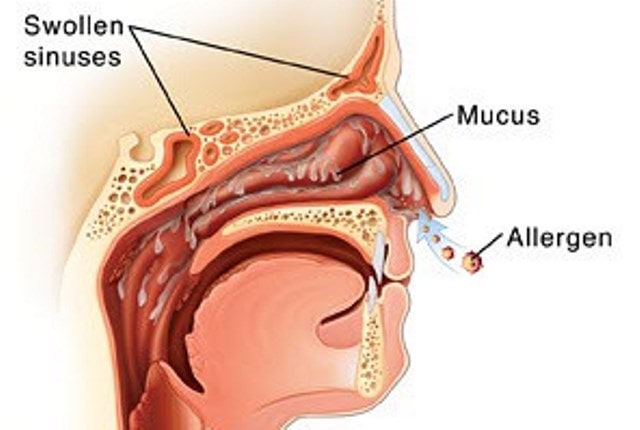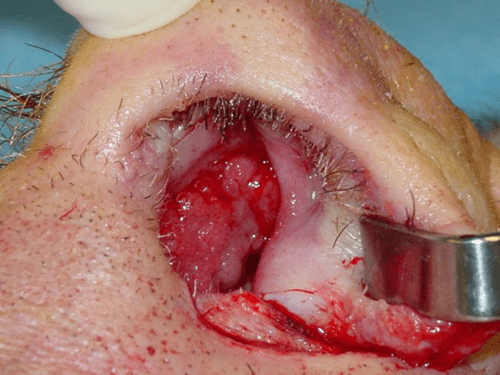Skin peeling is the last thing that anyone would wish for. It is not only ugly but embarrassing too; imagine struggling to keep your makeup on for at least two hours. If your skin is peeling off and you are desperate to have that supple, smooth skin back, then read on to learn how to stop skin from peeling.
As you will soon notice most of the tips given below can be implemented very easily at home all by yourself – without having to see dermatologist but as with any medical condition, you should seek medical attention if symptoms persist.
How to Stop Skin from Peeling- How to Stop My Skin from Peeling

Before we jump into the various options that you can use to stop skin from peeling, let us reiterate here that skin peeling is caused by one or more of the following factors: dry skin, allergies, sunburn, medical ailments, and poor nutrition especially vitamin B deficiency (or excesses of vitamin A).
Stopping the skin from peeling therefore revolves around addressing these factors. With that in mind here is how to stop skin from peeling:
Wash your skin gently: harsh cleansing routine can lead to skin drying and irritation which often culminates in skin peeling. To start with you should change to a non soap cleanser since the alkaline pH is often a culprit for skin dryness and irritation. You will also want to bathe with warm water (not hot) and after a shower or bath, pat your skin dry as opposed to rubbing the towel across your skin.
Protect your skin: Going on with ways on how to stop skin from peeling, sunburn could be the factor behind your peeling skin. To protect your skin from further damage, apply sunscreen and use wide-brimmed hats when going out in the sun. Cold temperatures are also common causes of skin peeling. It is therefore advisable to protect your skin (especially your hands) from winter harshness by using protective gears e.g. gloves.
Run a humidifier: A humidifier can help to stop skin peeling by ensuring proper levels of humidity in your house.
Moisturize your skin: Dry skin is a very common cause of skin peeling. Applying a moisturizer to the affected area of skin is therefore critical to stopping skin peeling. Moisturizing lotions and creams such as Cetaphil, Aquaphor, and Eucerin are ideal options.
If the skin on your feet is affected, you should consider applying some Vaseline petroleum jelly when sleeping and covering them with a pair of socks to prevent messing your beddings.
Jessica Wu, M.D, the author of Feed Your Face however warns against using heavy moisturizers if sunburn is behind the skin peeling as these can retain heat. Wu instead recommends using water based lotions or aloe for sunburn-induced skin peeling.
Use a cold milk compress: This is yet another great way to stop skin peeling which is especially useful for sunburn-induced skin peeling.
To use a cold milk compress mix whole milk with ice cubes in a small bowl and then soak in a face towel. Next hold the towel against the affected area of the skin for ten minutes. Repeat this twice daily until the skin peeling has cleared. The protein and lactic acid in the milk helps to soothe the skin while at the same time moisturizing it.
Hydrocortisone cream: If the above interventions don’t seem to stop your skin peeling, you should then consider using an over the counter hydrocortisone 1% cream.
Lastly if everything else fails and the skin peeling persists even with the use of hydrocortisone cream, you should see your doctor as immune system disorder, allergic reactions, or bacterial infection could be the underlying cause for the skin peeling. You should also see your doctor immediately if skin peeling is accompanied by pus or fever.
How to Keep Skin from Peeling- How to Prevent Skin Peeling

You are now probably wondering how to prevent skin peeling in the first place. Well the following tips will help you keep your skin from peeling:
Avoid direct sunlight: sunburn ranks top among the causes of skin peeling and it is therefore important to avoid overexposure to the UV rays from the sunlight. One great way to protect your skin from sunlight is to wear sunscreen when going outdoors. You will especially want to apply a moisturizer with at least SPF 30 daily on your face which shields against 97% of UVB rays.
Adopt a proper skin hydration regime: dry skin is a common cause of skin peeling and keeping your skin hydrated is paramount to preventing this problem. You will in particular want to drink plenty of water everyday (at least 8 glasses per day) and use gentle soaps for bathing and washing.
It is also recommended to use warm water (as opposed to hot water) to bathe and to pat your skin dry with a towel rather than wipe it across the skin. You should then apply a good moisturizing lotion or cream immediately when the skin is still wet (ideally within 5 minutes).
Eliminate potential allergens: Skin peeling is often caused by allergic reaction to certain foods and environmental elements e.g. some people are allergic to certain garments. It is thus advisable to identify and eliminate any suspected allergen in your house.
Avoid exposure to harsh chemicals: Burns from certain chemicals is often the cause of skin peeling. If your career involves working (or you at some point have to work) with chemicals that can burn the skin, you should protect your skin by wearing appropriate gloves and facial masks. This way you will be able to prevent burns and the skin peeling often associated with them.
How to Stop Skin Peeling on Face – How to Stop Skin from Peeling on Your Face
Sunburn, dry skin, allergies (e.g. to cosmetics) infections and skin conditions are common factor for skin peeling on face.
Here is how to stop skin peeling on face:
- Moisturize the face with a good water based facial cream or lotion
- Use a cold milk compress to nourish and soothe the skin
- Apply sunscreen of SPF 30 or more when heading outdoors
- Use gentle soaps and cold or warm water (not hot) to wash your face
- Stop using your makeup for a few days to rule out any allergic reactions
- Run a humidifier to restore air moisture
- Prepare an aloe Vera face mask using a fresh sap from an Aloe Vera plant or drugstore Aloe Vera gel
- Use hydrocortisone 1% cream on your face twice daily or as directed by the pharmacist
How to Stop Skin from Peeling after Sunburn
Skin peeling is often a sign that you have spent a little too many hours in the sun leading to sunburn. The skin peeling associated with sunburn occurs as the skin attempts to replace the sun damaged cells with new cells.
Unfortunately is often unsightly and can make you uncomfortable especially if they are accompanied by itching. It is then only natural that you would want to know how to stop skin from peeling after sunburn.
Your best bet would be to apply an Aloe Vera gel on the affected areas and use cold milk compresses (discussed above) to heal the peeling skin. You should also avoid using harsh soaps to clean the skin.
Over-the-counter anti-inflammatory medications such as ibuprofen are also recommended and The Mayo Clinic points out that they are the most effective when taken a soon as possible following the exposure to sun.
Moisturizing the sun burnt areas with good water based lotion or cream, or with a drugstore sunburn cream also helps. It is also important that you refrain from scratching the sunburned area as this can lead to irritation and maybe a secondary bacterial infection.
How to Stop Skin Peeling On Feet – How to Stop Skin from Peeling on Feet
You can stop skin peeling on feet by moisturizing with a thick moisturizer such as Aquaphor or Eucerin or by applying Vaseline petroleum jelly before going to sleep and using a clean pair of socks to protect your sheets. Anti-fungal creams are also recommended as athlete foot is a common culprit.
It is also important to ensure that your feet are clean and dry at all time especially in the areas between the toes and use an appropriate pair of shoes (made of leather or other breathable materials) and socks (made of cotton).
Suggested Further Reading
- Skin Peeling – Causes, Disease, on Mouth, Nose, Eyelid, Hands and Feet
- Skin Peeling on Fingers, Hands and Between Fingers
- Newborn Skin Peeling – Why, Infant or Baby Skin Peeling
- Skin Peeling on Face and How to Get Rid of It
- Skin Peeling on Fingertips – Why, Dry, Cracked and Causes
- Skin Peeling between Toes and Peeling on Toes
- Sunburn Skin Peeling – Skin Peeling After Sunburn and How to Stop
- Peeling Skin on Hands – Why, Dry Peeling Hands, Fingers, Palm
- Peeling Feet – Causes, Dry Peeling Feet, Itchy, Cracked and Treatment
- Peeling Skin on Feet, Causes and Dry Scaly Feet
- Bottom of Feet Peeling Causes, in Children and Toes


